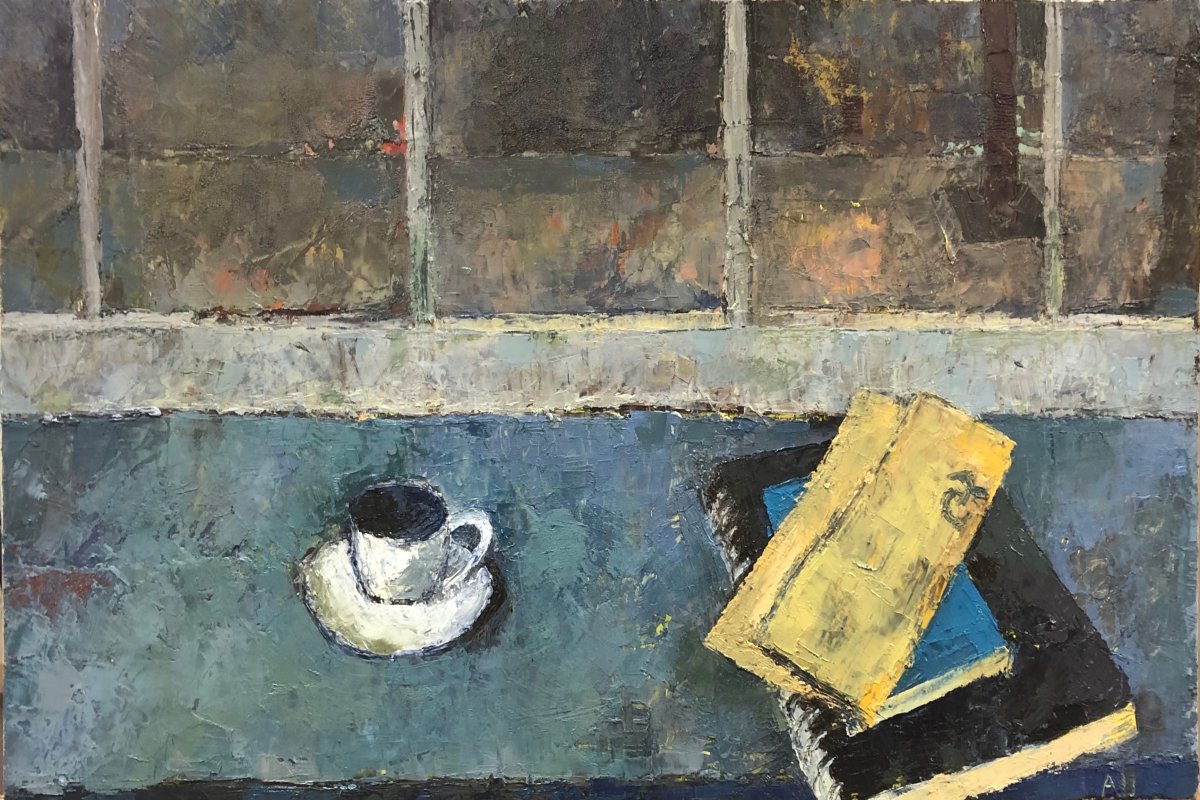The Aeneid, Books I-VI, translated by David Hadbawnik – Shearsman Books. 2015. Paperback. 222pp.
By Aaron Poochigian
—
 There are many, many translations of Virgil’s Epic of Empire, The Aeneid. The current “definitive” translations, the ones commonly assigned in Great Books courses, are Robert Fitzgerald’s, Robert Fagles’ and Allen Mandelbaum’s. David Hadbawnik, with his free translation, shows no interest in entering the competition for the lion’s share of the academic market. He omits over half the epic and includes primarily the “action” episodes. Since the lofty idiom of the original (and most translations) alienates the general reader, he uses colloquial language. Consciously inconsistent in tone and diction, his translation loudly calls attention to itself as such and revels with the irreverent joy of the avant-garde. His intent, it seems, is to create an independent and highly accessible contemporary work of art, and he does so successfully.
There are many, many translations of Virgil’s Epic of Empire, The Aeneid. The current “definitive” translations, the ones commonly assigned in Great Books courses, are Robert Fitzgerald’s, Robert Fagles’ and Allen Mandelbaum’s. David Hadbawnik, with his free translation, shows no interest in entering the competition for the lion’s share of the academic market. He omits over half the epic and includes primarily the “action” episodes. Since the lofty idiom of the original (and most translations) alienates the general reader, he uses colloquial language. Consciously inconsistent in tone and diction, his translation loudly calls attention to itself as such and revels with the irreverent joy of the avant-garde. His intent, it seems, is to create an independent and highly accessible contemporary work of art, and he does so successfully.
Hadbawnik’s Aeneid begins not with the original’s “arms and the man” but with the hero Aeneas barfing over the side of his ship:
Aeneas gets scared.
Limbs loosened in fear, he
groans, bends over and
pukes over the boat’s
edge. (p. 15)
Hadbawnik places emphatic words on the left margin, often leaving the line-endings to serve as a wind-up for the punch: “. . . in fear, he/groans. . .”; “. . . bends over and/pukes. . .”. Concerning the barfing: first, characters in epic do not “puke”—they vomit; second, this regurgitation is not in the original. Hadbawnik is here establishing a precedent for the rest of his translation: he will undercut and deflate epic discourse. His interpolation (the puking) also goes a good way toward humanizing Aeneas, a character whom many readers find cold. When Aeneas is telling his war-story in book 2, Hadbawnik has him speak not like the demigod he is, but like an Average Joe: “My wife appeared then both familiar and strange all at once/spooking the shit out of me. . .” (p. 59). Though bodily functions are usually off-limits in epic, Hadbawnik introduces them in both literal and figurative senses. Urine in the form of “piss” and feces in the form of “shit” make frequent appearances.
When the goddess Venus approaches her son Aeneas, she is wearing leather purple highboots, her hair is flowing in the wind and, in Hadbawnik’s translation, she does not use a lofty or even a neutral register:
“Hey,” she says, “you guys—
did you happen to see any of my sisters,
wearing quivers and spotted lynx hides, shouting
after a boar spewing foam on the path?” (p. 23)
“Hey. . . you guys” seems a translation of defiance, an expression of frustration with the stilted manner in which characters in Greek and Roman Epic address each other. The boar “spewing foam” in this passage is slightly more dignified than the “puking” Aeneas in the last.
In books three and four Hadbawnik employs a variety of techniques other than straightforward narration to rush the reader through the story. In book three, for example, he uses erasure to give an impressionistic summary of a voyage:
soft southerly winds
Doric seas
Apollo’s island
sacrifice
friendship
prophecy
father
interprets again— (p. 69)
In addition to glossing over exposition that might bore the reader, these passages suggest the glimpses of coasts and islands the characters are encountering during their sea-travel. Later, Hadbawnik switches modes from narrative to drama when, rather than translate the lines describing Dido’s suicide, he presents the material as a dialogue between Virgil and the dead Dido:
V
What did you tell your sister?D
I put on a fake smile and told herI’d found a way
either to bring him [Aeneas] back
or free myself from loving him—
all we needed to do is perform this rite
I heard about
V
What did the rite involve?D
Lots of stuff. . . (p. 113)
Amusing as they are on their own, Hadbawnik’s subversive tone and diction have serious implications for the meaning of the poem. Written by the foremost court poet of the early Roman Empire, the Aeneid is, among many other things, colonialist propaganda that attempts to justify empire-building. How can we, with the wisdom of the post-colonial age behind us, swallow the poem’s project? In the Star Wars films, The Empire is unambiguously evil; Avatar champions oppressed indigenes. Since we sympathize so strongly with the vanquished, how can we side with Aeneas, Augustus and the Romans in their subjugation of native tribes? Hadbawnik largely avoids the issue by omitting most of the passages that refer to Aeneas’ and Rome’s destiny. With the Fates downplayed and much of the divine machinery absent, the epic becomes part picaresque and part action-film. Hadbawnik does, however, translate one prophecy at length, the one delivered by Anchises to his son Aeneas in the Underworld. Anchises is here showing Aeneas the future leaders of Rome:
“There’s Caesar and all the Julian race
and this guy, who’s been frequently promised,is AUGUSTUS
of divine blood, who establishes
a Golden Age and restores Latium to its
old glory, extending the realm
even to India—so the Empire spreads
beyond the stars—are you able
to wrap your head around how awesome
this is? No one’s ever dared
dream of such power nor tamedso much land.
Please don’t tell me that your nuts still shrink
to take what’s ours in Italy.” (p. 212)
We find Anchises, the paragon of gravitas, using “awesome” in the colloquial sense and “nuts” in the testicular sense. Augustus, the first Emperor of Rome, is introduced, at first, merely as “this guy.” The translation simultaneously undercuts the gravity of Roman leaders and infuses the prophecy with a vulgar sort of testosterone. Jumping back and forth from epic to colloquial, the tone is fascinating in its poly-valence. Let’s go found an empire, dude! Hoo-rah!
It is fun to explode conventions, and Classical epic, along with Classical translation, is begging for it. Operating in the mode of scholar-poet Ann Carson, Hadbawnik’s free translation works as avant-garde literature because, in the field of Classics and Classical translation, there is still a conservative tradition to subvert. He charges the poem with electricity partly by vivid compressed writing and partly by shocks of tone and diction.
—
Aaron Poochigian earned a PhD in Classics from the University of Minnesota in 2006 and is completing an MFA in Poetry at Columbia University. His book of translations from Sappho, Stung With Love, was published by Penguin Classics in 2009, and his translation of Apollonius’ Jason and the Argonauts was released October 2014. His first book of original poetry, The Cosmic Purr (Able Muse Press) was published in March of 2012, and several of the poems in it collectively won the New England Poetry Club’s Daniel Varoujan Prize.




